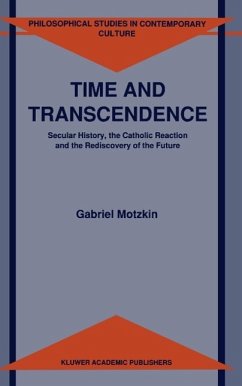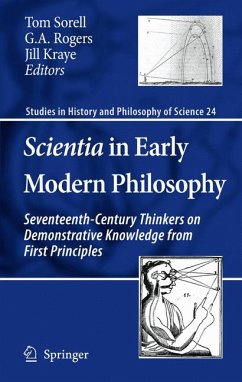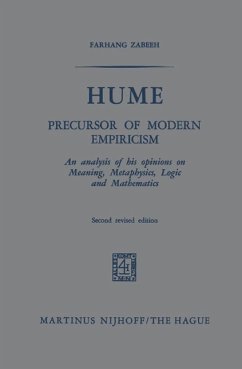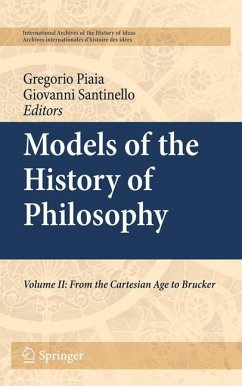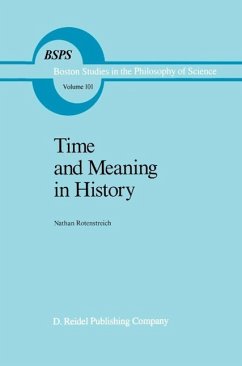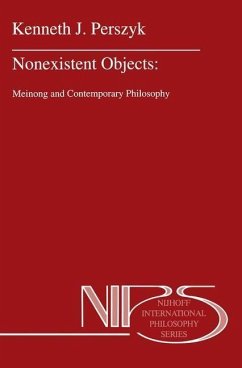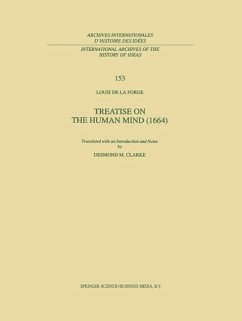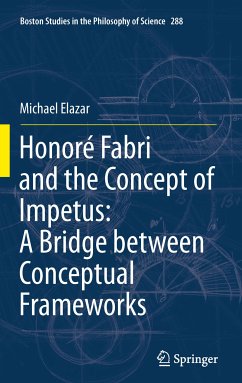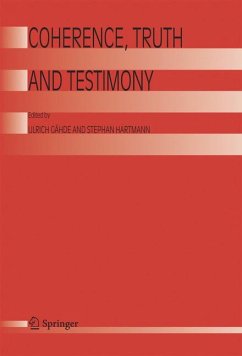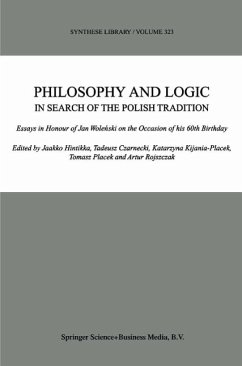
Renaissance Scepticisms (eBook, PDF)
Versandkostenfrei!
Sofort per Download lieferbar
183,95 €
inkl. MwSt.
Weitere Ausgaben:

PAYBACK Punkte
92 °P sammeln!
Even if specific pieces of research (on the sources or on individual authors, such as Pico, Agrippa, Erasmus, Montaigne, Sanches etc.) have given and are still producing significant results on Renaissance scepticism, an overall synthesis comprising the entire period has not been achieved yet. No predetermined idea of that complex historical subject that is Renaissance scepticism underlies this book, and we want to sacrifice the complexity of movements, personalities, tendencies and interpretations to any sort of a priori unity of theme even less. We acknowledge unhesitatingly that we had alway...
Even if specific pieces of research (on the sources or on individual authors, such as Pico, Agrippa, Erasmus, Montaigne, Sanches etc.) have given and are still producing significant results on Renaissance scepticism, an overall synthesis comprising the entire period has not been achieved yet. No predetermined idea of that complex historical subject that is Renaissance scepticism underlies this book, and we want to sacrifice the complexity of movements, personalities, tendencies and interpretations to any sort of a priori unity of theme even less. We acknowledge unhesitatingly that we had always thought of "scepticisms" in the plural, and believe that the different contexts (philosophical, religious, cultural) in which these forms grew up must also be taken into account. Furthermore, given the transversal nature and provocative character of the sceptical challenge, this book contains essays also on philosophers who, without being sceptics and sometimes engaged in fighting scepticism, nevertheless took up its challenge.
The main authors considered in this book are: Vives, Castellio, Agrippa, Pedro de Valencia, Pico, Sanchez, Montaigne, Charron, Bruno, Bacon, and Campanella. The various essays in the book show the relevance of the philosophical thought of authors little known by the general public and put in new perspective important aspects of the thought of some of the great thinkers of the Renaissance.
The main authors considered in this book are: Vives, Castellio, Agrippa, Pedro de Valencia, Pico, Sanchez, Montaigne, Charron, Bruno, Bacon, and Campanella. The various essays in the book show the relevance of the philosophical thought of authors little known by the general public and put in new perspective important aspects of the thought of some of the great thinkers of the Renaissance.
Dieser Download kann aus rechtlichen Gründen nur mit Rechnungsadresse in A, B, BG, CY, CZ, D, DK, EW, E, FIN, F, GR, HR, H, IRL, I, LT, L, LR, M, NL, PL, P, R, S, SLO, SK ausgeliefert werden.




